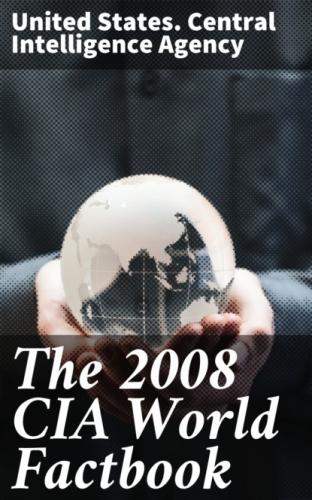AM 169, FM 55, shortwave 1 (1998)
Radios:
3.9 million (1997)
Television broadcast stations:
58 (1997)
Televisions:
2.64 million (1997)
Internet country code:
.cu
Internet hosts:
3,664 (2008)
Internet Service Providers (ISPs):
5 (2001)
Internet users:
1.31 million note: private citizens are prohibited from buying computers or accessing the Internet without special authorization; foreigners may access the Internet in large hotels but are subject to firewalls; some Cubans buy illegal passwords on the black market or take advantage of public outlets to access limited email and the government-controlled "intranet" (2007)
Transportation
Cuba
Airports:
165 (2007)
Airports - with paved runways:
total: 70 over 3,047 m: 7 2,438 to 3,047 m: 9 1,524 to 2,437 m: 18 914 to 1,523 m: 5 under 914 m: 31 (2007)
Airports - with unpaved runways:
total: 95 1,524 to 2,437 m: 1 914 to 1,523 m: 23 under 914 m: 71 (2007)
Pipelines:
gas 49 km; oil 230 km (2007)
Railways:
total: 4,226 km standard gauge: 4,226 km 1.435-m gauge (140 km electrified) note: an additional 7,742 km of track is used by sugar plantations; about 65% of this track is standard gauge; the rest is narrow gauge (2006)
Roadways:
total: 60,858 km paved: 29,820 km (includes 638 km of expressway) unpaved: 31,038 km (2000)
Waterways:
240 km (2007)
Merchant marine:
total: 11 by type: bulk carrier 2, cargo 3, passenger 1, petroleum tanker 3, refrigerated cargo 2 foreign-owned: 1 (Spain 1) registered in other countries: 13 (Bahamas 1, Cyprus 1, Netherlands Antilles 1, Panama 10) (2008)
Ports and terminals:
Cienfuegos, Havana, Matanzas
Military
Cuba
Military branches:
Revolutionary Armed Forces (Fuerzas Armadas Revolucionarias, FAR):
Revolutionary Army (ER; includes Territorial Militia Troops, MTT),
Revolutionary Navy (Marina de Guerra Revolucionaria, MGR; includes
Marine Corps), Revolutionary Air and Air Defense Force (DAAFAR),
Youth Labor Army (EJT) (2008)
Military service age and obligation:
17–28 years of age for compulsory military service; 2-year service obligation; both sexes subject to military service (2006)
Manpower available for military service:
males age 16–49: 3,094,388 females age 16–49: 3,024,876 (2008 est.)
Manpower fit for military service:
males age 16–49: 2,543,044 females age 16–49: 2,481,823 (2008 est.)
Manpower reaching militarily significant age annually:
male: 79,945 female: 76,014 (2008 est.)
Military expenditures:
3.8% of GDP (2006 est.)
Military - note:
the collapse of the Soviet Union deprived the Cuban Army of its major economic and logistic support, and had a significant impact on equipment numbers and serviceability; the army remains well trained and professional in nature; while the lack of replacement parts for its existing equipment and the current severe shortage of fuel have increasingly affected operational capabilities, Cuba remains able to offer considerable resistance to any regional power (2008)
Transnational Issues
Cuba
Disputes - international:
US Naval Base at Guantanamo Bay is leased to US and only mutual agreement or US abandonment of the facility can terminate the lease
Trafficking in persons:
current situation: Cuba is principally a source country for women and children trafficked within the country for the purpose of commercial sexual exploitation and possibly for forced labor; the country is a destination for sex tourism, including child sex tourism, which is a problem in many areas of the country; some Cuban nationals willingly migrate to the United States, but are subsequently exploited for forced labor by their smugglers; Cuba is also a transit point for the smuggling of migrants from China, Sri Lanka, Bangladesh, Lebanon, and other nations to the United States and Canada tier rating: Tier 3 - Cuba does not fully comply with the minimum standards for the elimination of trafficking and is not making significant efforts to do so; exact information about trafficking in Cuba is difficult to obtain because the government does not acknowledge or condemn human trafficking as a problem in Cuba; tangible efforts to prosecute offenders, protect victims, or prevent human trafficking activity do not appear to have been made during 2007; Cuba has not ratified the 2000 UN TIP Protocol (2008)
Illicit drugs:
territorial waters and air space serve as transshipment zone for US- and European-bound drugs; established the death penalty for certain drug-related crimes in 1999
This page was last updated on 18 December, 2008
======================================================================
@Cyprus
Introduction
Cyprus
Background:
A former British colony, Cyprus became independent in 1960 following years of resistance to British rule. Tensions between the Greek Cypriot majority and Turkish Cypriot minority came to a head in December 1963, when violence broke out in the capital of Nicosia. Despite the deployment of UN peacekeepers in 1964, sporadic intercommunal violence continued forcing most Turkish Cypriots into enclaves throughout the island. In 1974, a Greek Government-sponsored attempt to seize control of Cyprus was met by military intervention from Turkey, which soon controlled more than a third of the island. In 1983, the Turkish-held area declared itself the "Turkish Republic of Northern Cyprus" (TRNC), but it is recognized only by Turkey. The latest two-year round of UN-brokered talks - between the leaders of the Greek Cypriot and Turkish Cypriot communities to reach an agreement to reunite the divided island - ended when the Greek Cypriots rejected the UN settlement plan in an April 2004 referendum. The entire island entered the EU on 1 May 2004, although the EU acquis - the body of common rights and obligations - applies only to the areas under direct government control, and is suspended in the areas administered by Turkish Cypriots. However, individual Turkish Cypriots able to document their eligibility for Republic of Cyprus citizenship legally enjoy the same rights accorded to other citizens of European Union states. The election of a new Cypriot president in 2008 served as the impetus for the UN to encourage both the Turkish and Cypriot Governments to reopen unification negotiations.
Geography
Cyprus
Location:
Middle East, island in the Mediterranean Sea, south of Turkey
Geographic coordinates:
